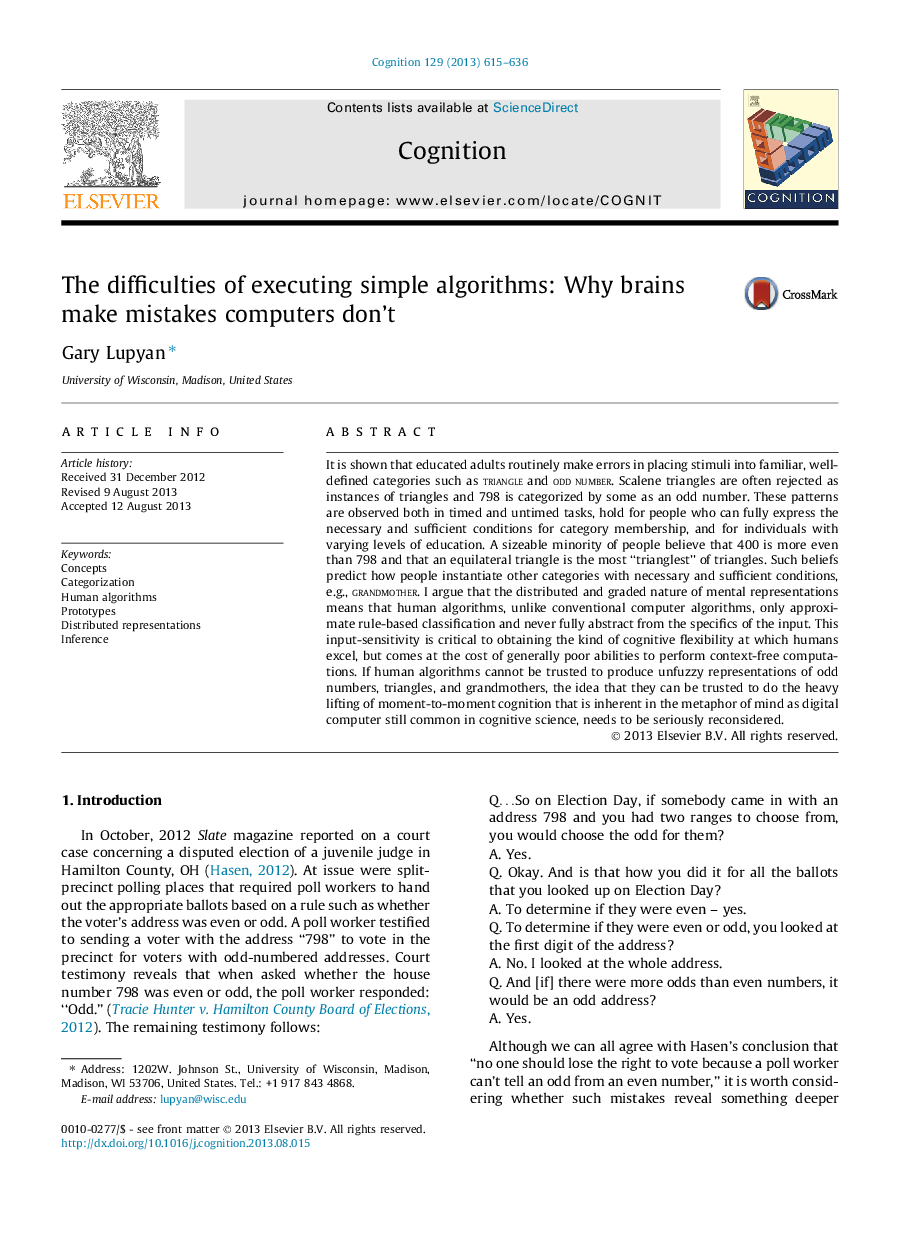| کد مقاله | کد نشریه | سال انتشار | مقاله انگلیسی | نسخه تمام متن |
|---|---|---|---|---|
| 10457602 | 921852 | 2013 | 22 صفحه PDF | دانلود رایگان |
عنوان انگلیسی مقاله ISI
The difficulties of executing simple algorithms: Why brains make mistakes computers don't
ترجمه فارسی عنوان
مشکلات اجرای الگوریتم های ساده: چرا مغز کامپیوتر اشتباه انجام نمی دهد
دانلود مقاله + سفارش ترجمه
دانلود مقاله ISI انگلیسی
رایگان برای ایرانیان
کلمات کلیدی
مفاهیم، طبقه بندی، الگوریتم های انسانی، نمونه های اولیه، نمایندگی توزیع، استنتاج،
موضوعات مرتبط
علوم زیستی و بیوفناوری
علم عصب شناسی
علوم اعصاب شناختی
چکیده انگلیسی
It is shown that educated adults routinely make errors in placing stimuli into familiar, well-defined categories such as triangle and odd number. Scalene triangles are often rejected as instances of triangles and 798 is categorized by some as an odd number. These patterns are observed both in timed and untimed tasks, hold for people who can fully express the necessary and sufficient conditions for category membership, and for individuals with varying levels of education. A sizeable minority of people believe that 400 is more even than 798 and that an equilateral triangle is the most “trianglest” of triangles. Such beliefs predict how people instantiate other categories with necessary and sufficient conditions, e.g., grandmother. I argue that the distributed and graded nature of mental representations means that human algorithms, unlike conventional computer algorithms, only approximate rule-based classification and never fully abstract from the specifics of the input. This input-sensitivity is critical to obtaining the kind of cognitive flexibility at which humans excel, but comes at the cost of generally poor abilities to perform context-free computations. If human algorithms cannot be trusted to produce unfuzzy representations of odd numbers, triangles, and grandmothers, the idea that they can be trusted to do the heavy lifting of moment-to-moment cognition that is inherent in the metaphor of mind as digital computer still common in cognitive science, needs to be seriously reconsidered.
ناشر
Database: Elsevier - ScienceDirect (ساینس دایرکت)
Journal: Cognition - Volume 129, Issue 3, December 2013, Pages 615-636
Journal: Cognition - Volume 129, Issue 3, December 2013, Pages 615-636
نویسندگان
Gary Lupyan,
